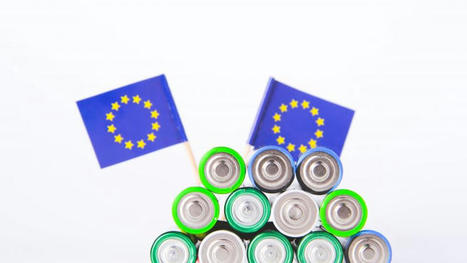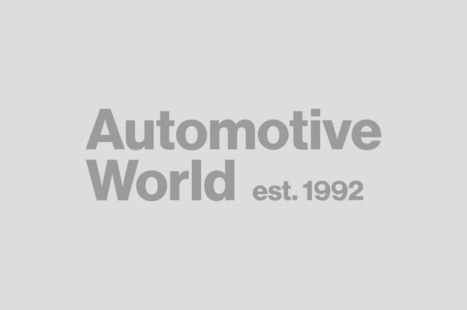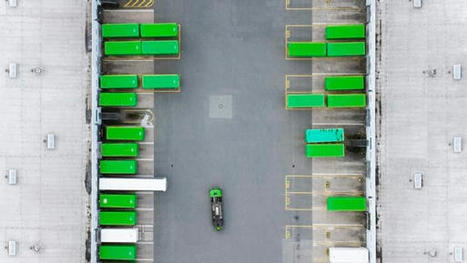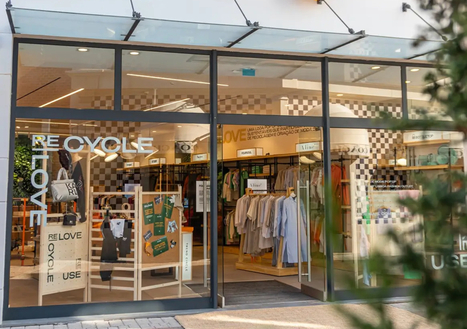 Your new post is loading...
 Your new post is loading...
The new EU battery regulation is a top priority for all EU institutions. It defines the regulatory framework for the ambitions of the European Commission and member states to establish a full EV batteries value chain in Europe. It is therefore remarkable that – despite all EU institutions committing to find compromises swiftly – it will have taken over two years for the new regulation to be adopted and enter into force.
Complex and ambitious
The drafting of the regulation took longer than anticipated because of the complexity of both the proposal and the EV battery value chain as well as the desire to regulate all steps from cradle to gate – from mining over manufacturing, and use, to the end-of-life management. Furthermore, covering a wide range of dimensions (technical, environmental, economic, and social) has turned out to be highly ambitious.
The other aspect to consider is the conceptual idea behind the new battery regulation. It is seen as a blueprint for future EU product legislation, establishing a digital product passport with all its complexities and covering all steps of the product life cycle. Getting things right from the start is therefore of critical importance for all EU institutions and requires intensive consultation.
Via EcoVadis
Ford Motor Company and Manufacture 2030 announced today a strategic partnership to help Ford’s suppliers meet their carbon reduction targets toward Ford’s goal of reaching carbon neutrality no later than 2050 globally, and by 2035 in Europe.
“Achieving carbon neutrality for Ford is an important corporate goal and integral to our purpose to help build a better world,” said Jonathan Jennings, Ford Global Vice President, Supply Chain. “It is becoming a strong demand from our customers, shareholders and investors, and the supply chain is essential in achieving this goal. Hitting our targets will require we cut emissions across our entire value chain, particularly from purchased energy, goods and services. M2030 is a key program for Ford to help us all in not only reporting emissions but in forming realistic action plans and glidepaths to achieving our goals.”
In the first phase of the partnership with M2030, Ford is offering the voluntary platform to its more than 5,000 Tier 1 global supplier sites covering more than 66 countries, including suppliers who have yet to establish science-based carbon reduction targets. M2030’s platform can help suppliers identify which actions to take to measure, manage and reduce carbon emissions and reduce costs as they build their carbon neutrality plans.
Via EcoVadis
From 2025 onward, the joint venture between PowerCo, the new battery business of the Volkswagen Group, and Umicore, the Belgian circular materials technology company, will begin producing precursor and cathode materials in Europe. The partnership will provide European battery cell manufacturers with key chemicals supplied by PowerCo.
The partners’ aim by the end of the decade is to produce cathode material and their precursors for 160 GWh cell capacity annually. This compares to an annual production capacity that could power about 2.2 million full electric vehicles. Cathode active materials are crucial for a successful powertrain transition towards e-mobility because they are key levers affecting battery performance, as well as the biggest single contributor to overall battery cost.
“Cathode material is an indispensable strategic resource for battery production, accounting for roughly fifty percent of overall cell value.” said Thomas Schmall, Group Board Member for Technology at Volkswagen AG and Chairman of the Supervisory Board of PowerCo SE. “Immediate and long-term access to extensive capacity is thus a very clear competitive advantage. We are setting up a sustainable, transparent supply chain with high environmental and social standards, localizing value creation here in Europe.”
Via EcoVadis
Road transport is the most prioritized area to reduce CO2 emissions, according to leading e-commerce and manufacturing companies in Europe. A new report carried out by Ipsos and Volvo Trucks shows that companies are willing to pay more for transport suppliers with lower CO2 emissions.
The research company Ipsos has, on behalf of Volvo Trucks, interviewed 100 large e-commerce and manufacturing companies in eight European countries about their demand for fossil fuel free transports in future procurements.
The vast majority of these companies have set targets to reduce their climate footprint. 78% of those interviewed say that they are willing to pay more for a transport supplier with little or no CO2 emissions and 85% are prepared to change transport suppliers if they don´t meet their requirements.
Via EcoVadis
Following the lead of other countries in Europe and around the world, the German Government passed new ESG (Environmental, Social and Governance) legislation called the German Act on Corporate Due Diligence in Supply Chains – commonly referred to as the “Supply Chain Act.” This Act is designed to impose new due diligence obligations on companies, both to protect human rights and to apply environmental standards to companies’ supply chains.
Via EcoVadis
|
Following initial contracts with European suppliers, the BMW Group has now concluded further agreements for the supply of CO2-reduced steel in the US and China. In the medium-term, the BMW Group will increase CO2 savings through agreements with additional steel suppliers and thus consistently drive forward the decarbonization of its supplier network.
Via EcoVadis
A new report has found that Europe is by far the largest consumer of sustainable palm oil in the world, accounting for 45% of total global use of RSPO certified sustainable palm oil.
Jointly commissioned by the Roundtable on Sustainable Palm Oil (RSPO), European Palm Oil Alliance (EPOA) and IDH - The Sustainable Trade Initiative, the report, Sustainable Palm Oil: Europe's business - fact, analysis and actions to leverage impact, presents an in-depth analysis of the current trends and developments in the European palm oil market and supply chain.
Key Findings
By reaching 93% uptake of certified sustainable palm oil in Europe for food, feed and oleochemical purposes, the palm oil sector is at the forefront of sustainability, and ahead of most other commodities, even before legislation.
This is followed by certified sustainable palm kernel oil (CSPKO) at 62% and certified sustainable palm kernel expeller (CSPKE) at only 5%, indicating that sustainable sourcing needs to be further developed in some sectors. CSPKO and CSPKE are mainly used in the oleochemical and feed sectors, respectively.
Via EcoVadis
Imports of 14 types of commodities into the European Union will soon have to be verified for possible association with deforestation in the countries in which they were produced.
That’s the key provision in a bill passed on Sept. 13 by the European Parliament, which initially targeted soy, beef, palm oil, timber, cocoa, and coffee, but now also includes pork, lamb and goat meat, as well as poultry, corn, rubber, charcoal, and printed paper.
The bill still needs the approval of the Council of the EU and the national parliaments of the 27 countries in the bloc, but is already considered a historic step against deforestation.
In Brazil, experts have welcomed the bill as a means of tackling the demand-side pressures driving increasing levels of deforestation in the Amazon Rainforest, while the agribusiness lobby has denounced it as unfair.
Via EcoVadis
Companies are ramping up their climate commitments, and with them their ambitions to source materials—such as green steel, recycled aluminum, and recycled plastic—that have lower emissions intensity than their conventional equivalents. Production capacity for many low-emissions materials, however, appears set to fall far short of future demand. For example, our analysis suggests that in 2030 demand for green steel in Europe could be twice as great as the available supply. Projections point to global shortages of recycled aluminum and recycled plastic.
Via EcoVadis
European clothing retailer VIA Outlets has kick-started a new sustainability initiative with the launch of its first ‘Re.Love’ pop-up store in Lisbon, Portugal.
The company plans to establish several pop-ups throughout Europe which will champion ‘sustainable’ collections, secondhand fashion and rental.
Geert Paemen, group sustainability director at VIA Outlets, commented: “We are delighted to pioneer this new sustainability initiative, which complements the ambitious environmental targets we have set for our centres and highlights the important efforts being made by our brand partners in this field.”
Via EcoVadis
|



 Your new post is loading...
Your new post is loading...














